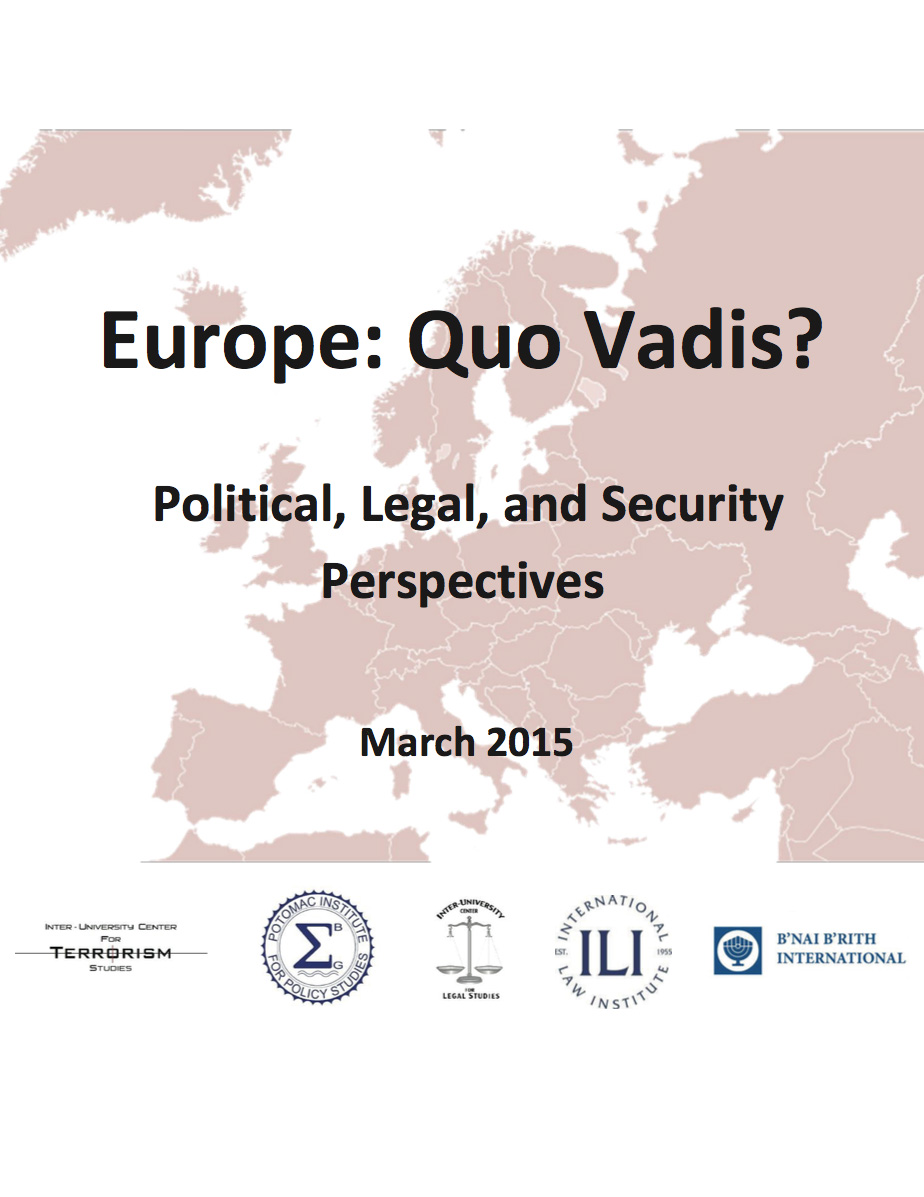Divisions
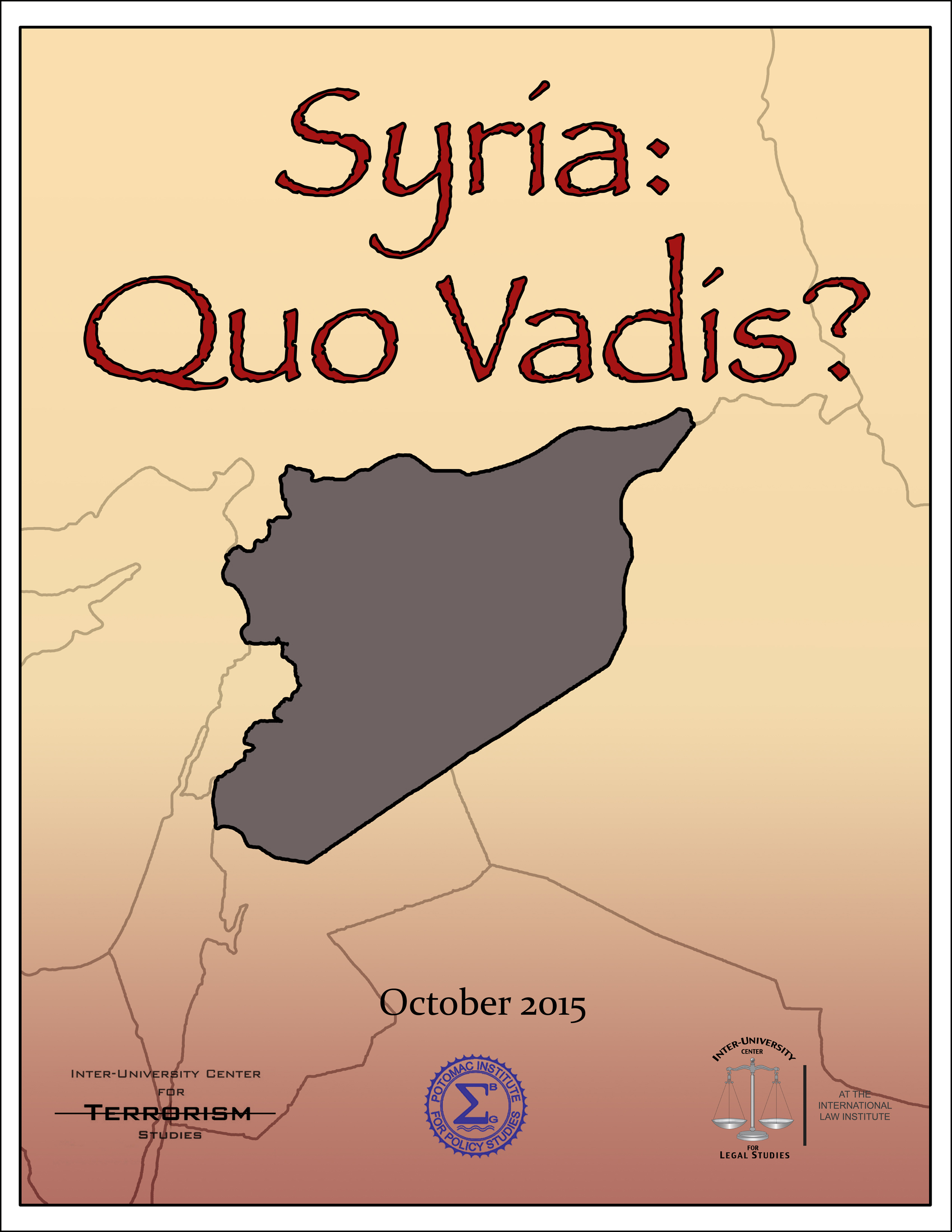 Professor Yonah Alexander
Professor Yonah Alexander
Director, Inter-University Center for Terrorism Studies
Contemporary Syria (formally the Syrian Arab Republic) is a United Nations member state under the regime of President Bashar Assad. Tragically, it ranks as one of the most brutal dictatorships in the history of mankind. As the country’s raging war grinds through its fifth year, a total of an estimated 300,000 citizens, including women, children, and elderly, have been killed and thousands more wounded. The gravity of the humanitarian crisis is demonstrated by the four million Syrian refugees who fled the unbearable costs of the unending battles, into Lebanon, Jordan, Turkey, and Iraq and, with hundreds of thousands even journeying from the Middle East towards safety in Europe and elsewhere.
Download full PDF here.
Foreword
Professor Don Wallace, Jr.
Chairman, International Law Institute
I am happy to have been asked by Professor Alexander to prepare this foreword to “Europe: Quo Vadis? (Political, Legal, and Security Perspectives).” Yonah Alexander’s “Europe: Quo Vadis? (Political, Legal, and Security Perspectives).” Yonah Alexander’s Introduction to this volume recites the many dimensions of our subject. Dimensions in which he, Introduction to this volume recites the many dimensions of our subject. Dimensions in which he, organizations in which he has been involved or with which he has cooperated, and programs that organizations in which he has been involved or with which he has cooperated, and programs that they have conducted, have touched upon and opened up.
To be sure, Professor Alexander’s central concern, the permanent need to be cognizant of, knowledgeable about and determined to resist the insidious threats of terrorism, is always of, knowledgeable about and determined to resist the insidious threats of terrorism, is always front and center in his work. But “Europe: Quo Vadis?” encompasses much more, as does the front and center in his work. But “Europe: Quo Vadis?” encompasses much more, as does the world in which Europe finds itself today. The Eurozone, and the EU itself, is challenged by the world in which Europe finds itself today. The Eurozone, and the EU itself, is challenged by the financial and economic straits of some of it members. Its expenditures on defense and especially financial and economic straits of some of it members. Its expenditures on defense and especially as these relate to NATO, and issues such as some of Turkey’s vagaries, are causes for concern.
The antics and behavior of Vladimir Putin’s Russia, towards Ukraine and neighboring countries may be the greatest threat to Europe, and thus to us. How Europe relates itself to the rise of Asia, may be the greatest threat to Europe, and thus to us. How Europe relates itself to the rise of Asia, especially its economic rise, will be of paramount concern. But Europe’s economy and society especially its economic rise, will be of paramount concern. But Europe’s economy and society remain powerfully attractive: to Africans risking their lives to find livelihood, and to terrorists remain powerfully attractive: to Africans risking their lives to find livelihood, and to terrorists seeking to upend its values, as in the cowardly assaults in Paris on Charlie Hebdo, and a Jewish seeking to upend its values, as in the cowardly assaults in Paris on Charlie Hebdo, and a Jewish supermarket on that day. Extremists of various ilks challenge mainstream political parties. And one of Europe’s most lethal bacilli, anti-semitism, as Yonah points out in his Introduction, has one of Europe’s most lethal bacilli, anti-semitism, as Yonah points out in his Introduction, has returned, in several strains, traditional as in Greece and Hungary, and possibly in an equally virulent form in France and elsewhere.
The reference to Pope Francis, by Yonah, implicates the ultimate questions for Europe: quo vadis its values, its spirit, its will? Its true security depends on the answers to those questions.
I trust you find our report of value.
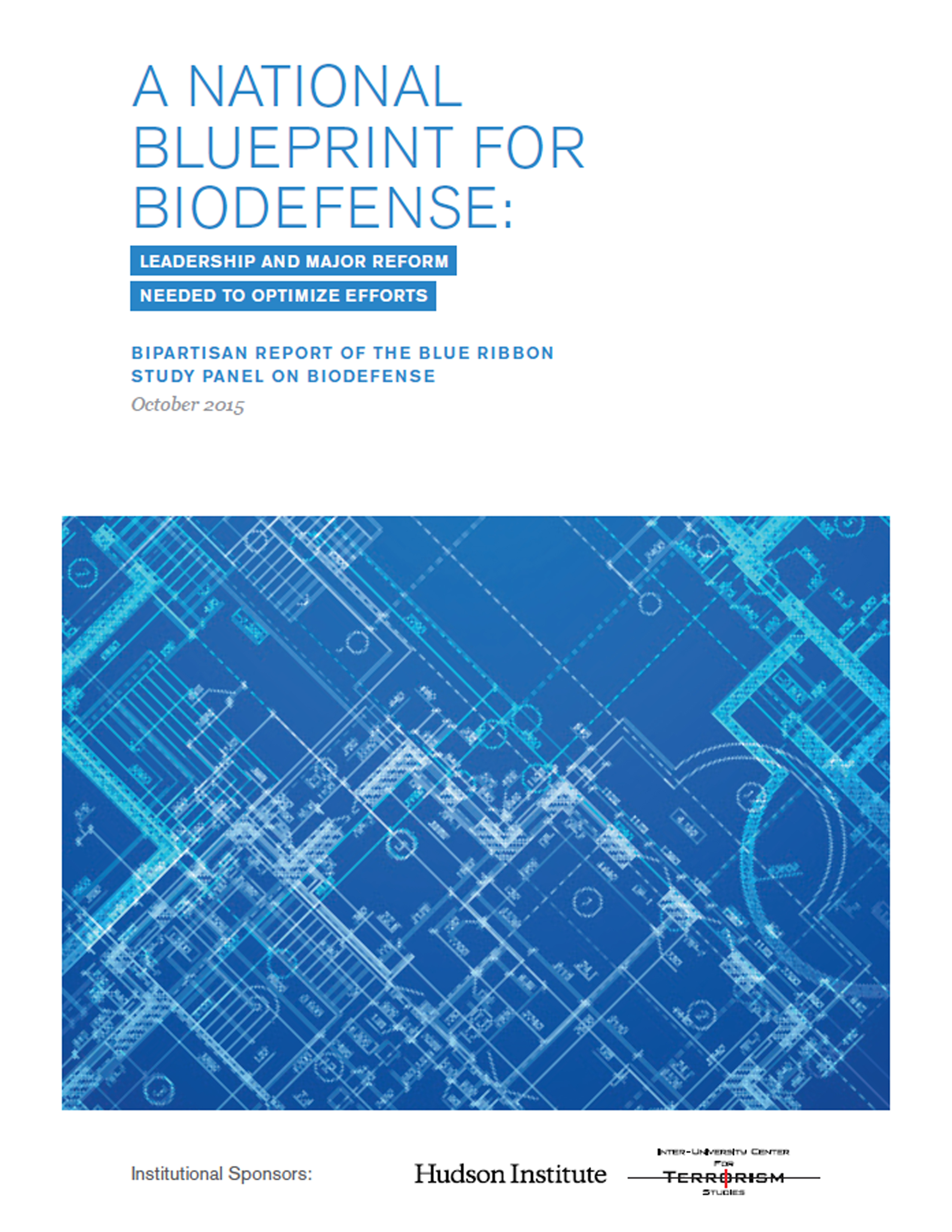 The panel was formed to recommend changes to U.S. policy and law to strengthen national biodefense while optimizing resource investments. Former Senator Joe Lieberman and former Governor Tom Ridge co-chair the panel, joined by panel members Former Secretary of Health and Human Services Donna Shalala, former Senator Tom Daschle, former Representative Jim Greenwood, and the Honorable Kenneth Wainstein.
The panel was formed to recommend changes to U.S. policy and law to strengthen national biodefense while optimizing resource investments. Former Senator Joe Lieberman and former Governor Tom Ridge co-chair the panel, joined by panel members Former Secretary of Health and Human Services Donna Shalala, former Senator Tom Daschle, former Representative Jim Greenwood, and the Honorable Kenneth Wainstein.
For more information on the Blue Ribbon Study Panel on Biodefense, please visit their website.
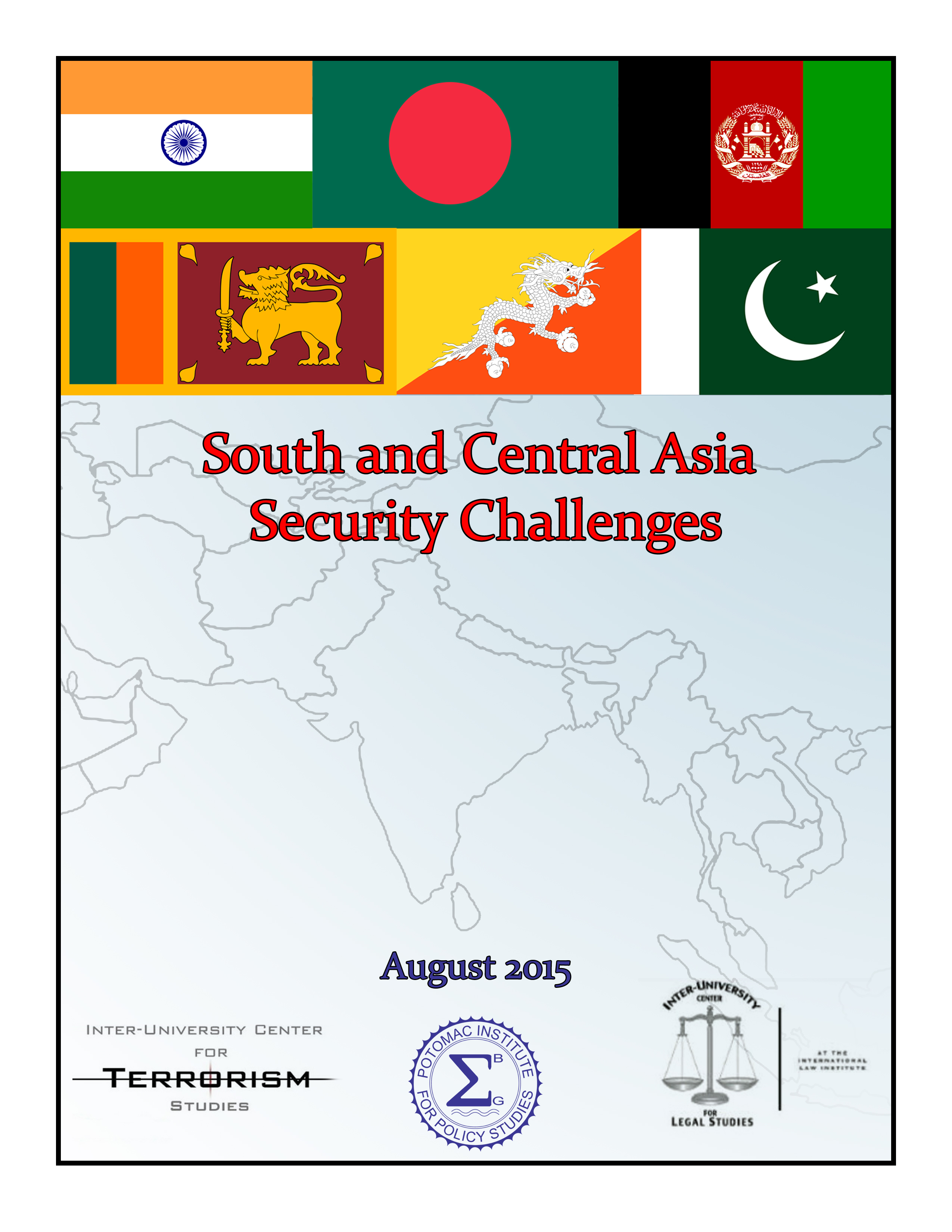
Introduction
Professor Yonah Alexander
Director, Inter-University Center for Terrorism Studies
Since the division of the subcontinent in 1947, South Asia has continuously been facing multiple threats to peace, stability, and economic development. Regional countries -- India, Pakistan, Bangladesh, Afghanistan, Sri Lanka, Nepal, and Bhutan -- have experienced various forms of intolerance, extremism, and violence. Suffice it to mention organized crime, terrorism, insurgency, periodic flare-ups, armed skirmishes, and outbreaks of civil and external wars. An ongoing critical security concern is the unresolved conflict between India and Pakistan over the control of Kashmir. Indeed, this challenge contains the seed of a potential nuclear escalation that might drag the entire region to the brink of an unprecedented disaster.
It is not surprising, therefore, that the academic community worldwide has closely followed strategic developments in South Asia for decades. For example, the Institute for Studies in International Terrorism at the State University of New York (SUNY) cooperated in 1968 with educational partners in India to hold an international conference in New Delhi dealing, inter alia, with communal violence as an obstacle to peace. Similar academic undertakings were co- sponsored with numerous institutions in the region and elsewhere in Asia, including China, Japan, Indonesia, and South Korea.
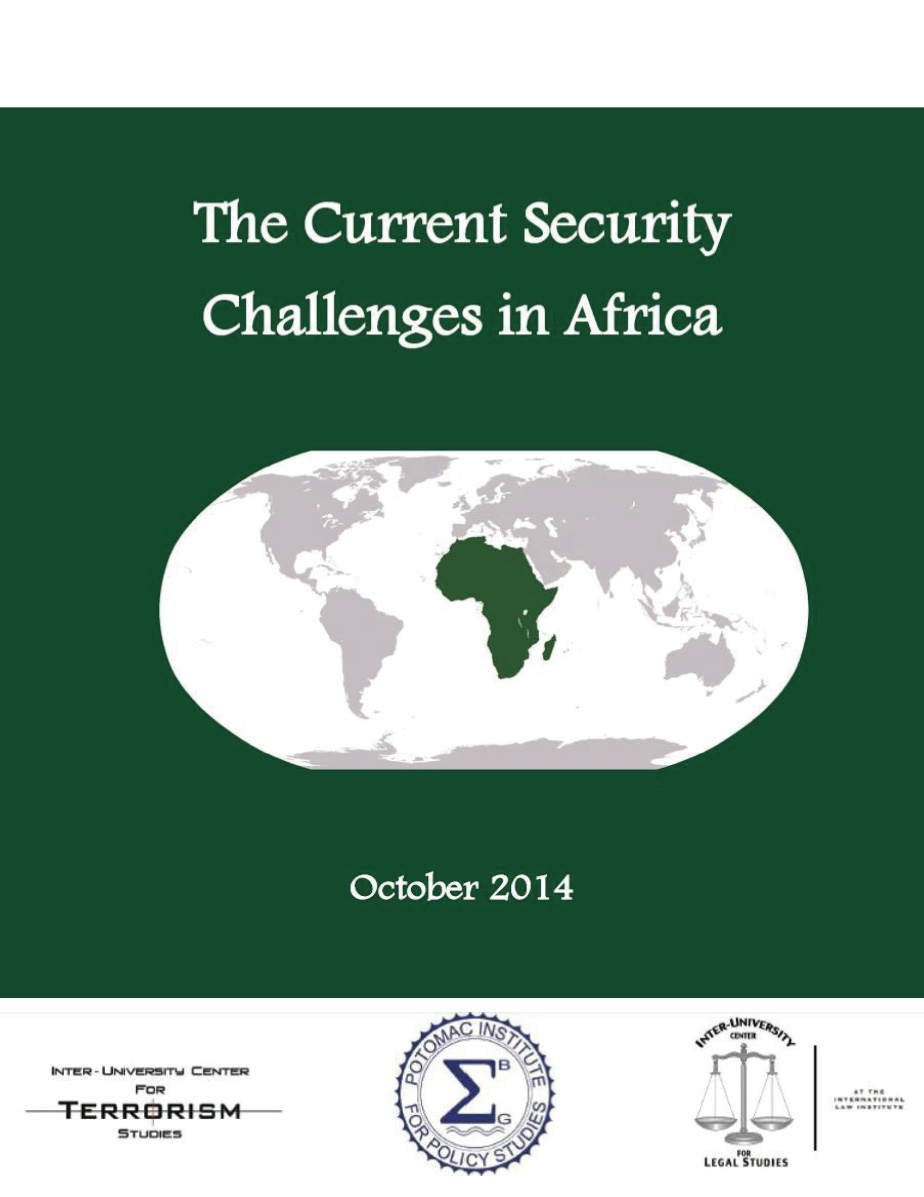 Ebola & Extremism: Rising Security Threats from Natural & Man-made Challenges in Africa
Ebola & Extremism: Rising Security Threats from Natural & Man-made Challenges in Africa
Professor Yonah Alexander
Director, Inter-University Center for Terrorism Studies
Two major security challenges are facing contemporary societies in Africa and elsewhere. The first stems from natural disasters, and the second is from calamities caused by man-made actions. More specifically, “mother nature’s” profound impact on Africa’s security ranges from earthquakes to famine to infectious disease epidemics.

